Growing up in a wayang troupe in old Singapore – with duck poop and sequins
Theatre director Goh Boon Teck and his famous Chinese opera star mother Madam Oon, whose story unfolds in Titoudao, recall the days when they lived and breathed the stage.
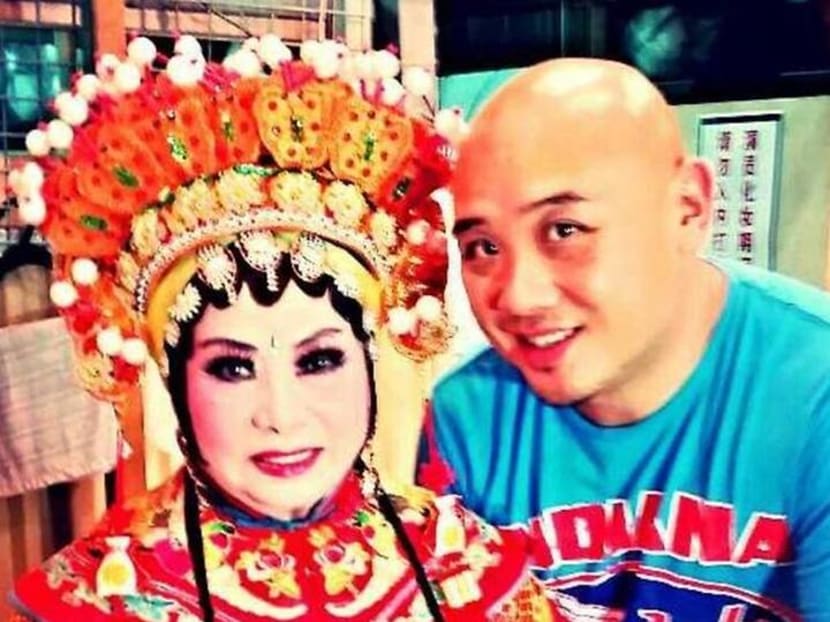
Goh Boon Teck and his mother, Madam Oon Ah Chiam, whose story inspired him to write Titoudao. (Photo: Goh Boon Teck)
Titoudao is a familiar Singapore play that’s already had several runs through the years, but this month, it will be making a foray into television for the first time.
Titoudao: Inspired By The True Story Of A Wayang Star is a series adaptation of acclaimed theatre director Goh Boon Teck’s play based on the tumultuous life of his mother, Madam Oon Ah Chiam, who was a popular Chinese opera performer in the 50s and 60s.
The series, which stars Fann Wong, Andie Chen, Constance Lau, Lina Ng and Joel Choo, also offers a look into Singapore's history.
When we met up with Madam Oon, who’s now 77, she told us she’s chuffed that Malaysian actress Koe Yeet, who plays her character, is “much prettier than I am”.

But becoming a famous opera star was less about looks and more about determination and hard work.
Growing up on a farm in what is now the Yew Tee area, her parents had more children than they could feed, and she had to work for her keep. “My father didn’t love me – I wanted to go to school and study, but he wouldn’t let me, even though he let my younger sister go,” she shared.
THE ART OF WALKING SILENTLY
At the age of 14, she joined the Sin Sai Hong Chinese opera troupe and began earning her own keep. She started out doing odd jobs like washing socks and running errands. Then, she was allowed to play non-speaking roles such as those of soldiers, maids and eunuchs. Later, she progressed to learning fighting moves and how to wield a prop gun. In the mornings, she’d get up and practise “yun bu”, the art of walking without a sound.
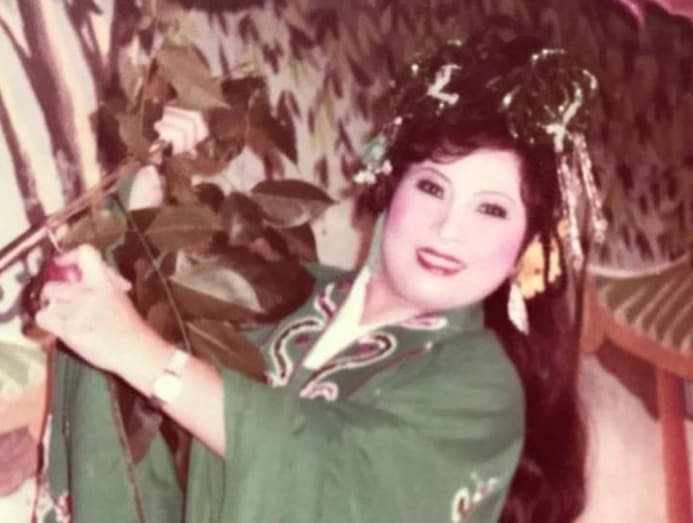
The stage life appealed to her, and she wanted to be a star. “They looked so beautiful with their outfits and makeup,” she recalled.
Among her illiterate peers, she proved to have a knack for memorising scripts, and it wasn’t long before she became a prima donna. “People really liked me. They would join hands to prevent me from leaving after a performance,” she said.
“Temples would request for me to perform at their events, and if I couldn’t make it, they would pay less for the booking. When we travelled to Malaysia to perform, audiences would ask for me. One year, I had a sore throat and couldn’t go, and they made a fuss.”
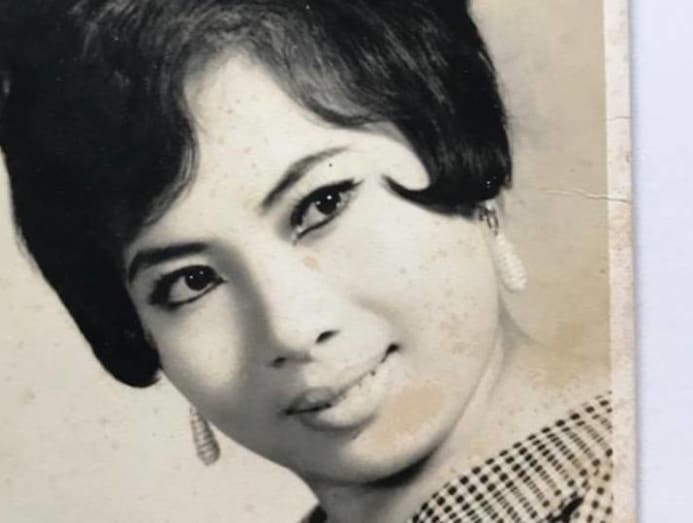
A LARGER-THAN-LIFE CHILDHOOD
Madam Oon’s life as a performer became so all-encompassing that even while she was pregnant with Goh and his older sister, she was still working the stage, “climbing up and down and performing stunts”.
“While she was pregnant, she continued performing, so I was already on stage pre-birth,” Goh quipped. As a baby, “I was the kind of child who would cry if she wasn’t in sight. So I was always there (at the opera) up until the age of six, when I had to start school and could only go after classes.”
It was an unforgettably rich childhood, he recalled: “All the colours, all the sequins, all the activity – it was just so much larger than life. There was so much excitement every night. It wasn’t a boring childhood playing ball or bubbles. It was beyond that. There was always something going on, some festival, a lot of aunties and uncles, lots to eat, and lots of friends of the same age, because other members of the troupe had children, too. I loved encountering different stories all the time. It was enchanting.”
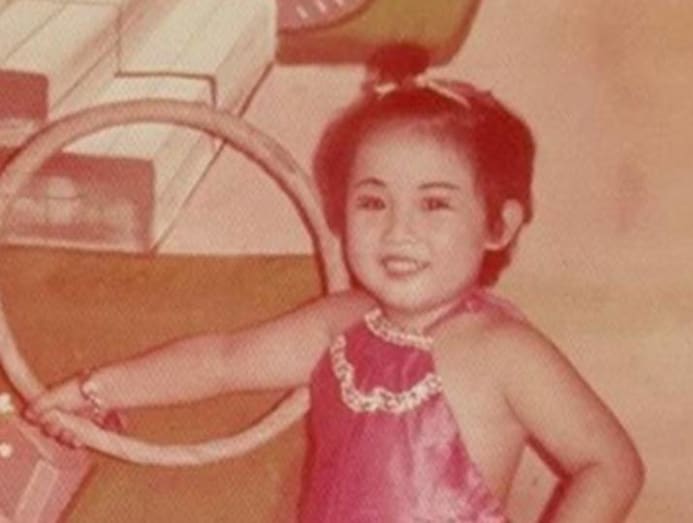
“He would say he wanted to be on stage,” Madam Oon recalled, so, she made him tiny costumes. As a little boy, Goh said, “I had to cross dress all the time. She’d sometimes make me perform as the maid of a rich lady. I also had to play eunuchs.”
Once, “a member of the audience revealed himself to be from the Ministry of Manpower, and they took us to task for child labour. I was so scared,” Madam Oon said. “We were all really playing, for fun. We didn’t receive wages. But the MOM questioned her,” Goh said. In the end, “It was just a warning – nothing happened.”
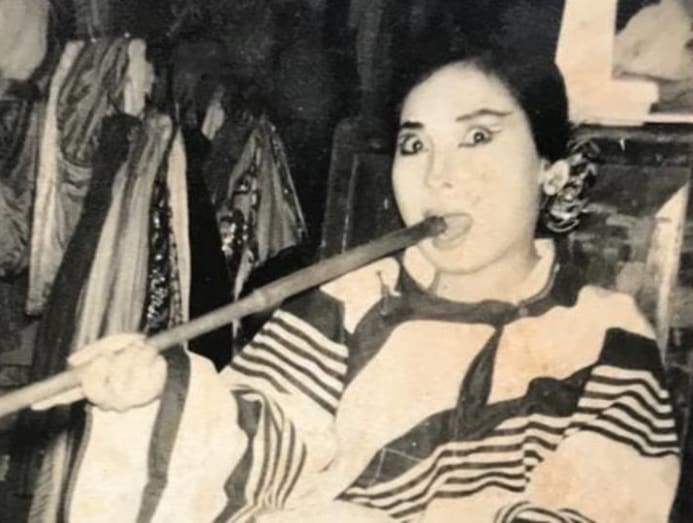
WHEN DUCKS INVADE THE STAGE
A more real and present danger was perhaps Goh’s own mischievousness. “There were ducks under the stage, and I would tell him to be careful not to fall because there was a lot of duck poop – but he would do it anyway,” Madam Oon said. “I had problems following instructions!” Goh laughed.
Once, when he was five, while on tour in Batu Pahat, Malaysia, Madam Oon said, “There were bee hives under the stage and I told him he wasn’t allowed to go there in case he got stung. He waited for me to go on stage to perform before he went. He was stung all over and cried a lot. It was nighttime, there were no doctors and I didn’t know what to do, so I just put medicated oil on his face. Back then, we had nothing and we never went to the doctor.”
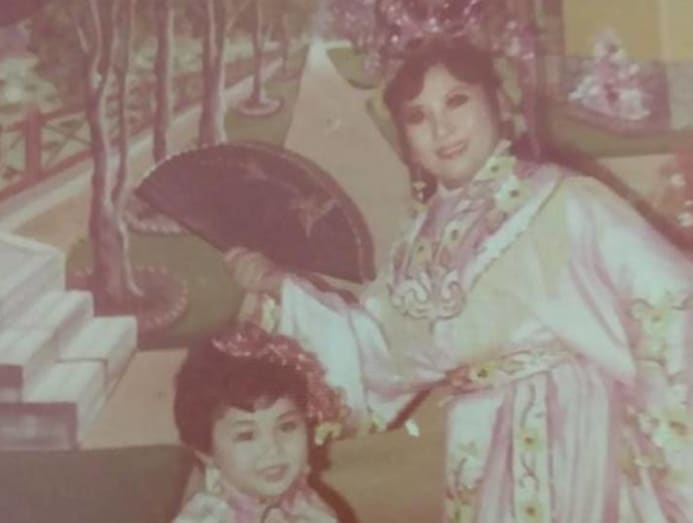
In spite of that incident being one of his most vivid memories, his childhood with the opera troupe left a deep impression on Goh, now a much-lauded playwright, director and designer who credits his love for the stage, drama and writing to the nurturing influence of his mother and her craft.
“It was inherited and unknown until I worked in contemporary theatre, with The Theatre Practice and Kuo Pao Kun, and then I realised that it felt so familiar,” Goh remembered. “Before that, I really thought I was going to be a visual artist or a tenor – I wanted to train as a classical singer. When I started doing theatre, all the passion just came (over me).”
That capacity for artistry, he said, is thanks in part to a childhood that was “very vibrant, extraordinary, with everything larger than life... It was a very rich heritage and culture that I grew up with.”
Titoudao: Inspired By The True Story Of A Wayang Star will be available for free from Feb 18 on Mediacorp meWATCH (formerly Toggle), as well as every Tuesday at 9.30pm on Channel 5.






